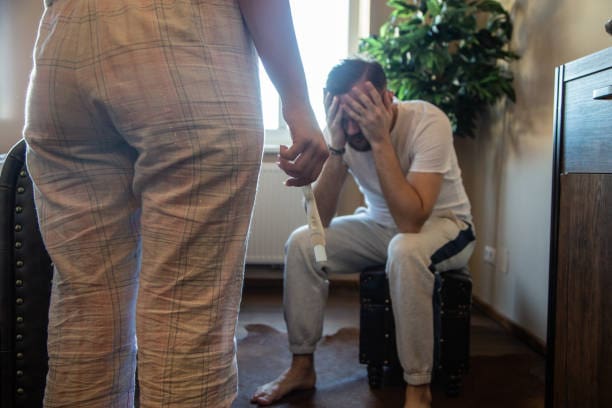In marriages and divorce, some people may suspect that there is a risk of family law abuse, violence or child abuse. Family members, especially children are susceptible to abuse and family violence. According to Section 67ZA of the Family Law Act 1975, the following people are qualified to suspect child abuse or family violence:
- Chief Executive Officer
- Senior Registrar or registrar of the Federal Circuit and Family court of Australia (Division 1 and 2)
- Deputy Registrar or Registrar of the Family Court of Western Australia
- Family Consultants
- Family Counsellors
- Family Dispute Resolution Practitioners (mediators and arbitrators)
- Independent lawyers who represent the child’s best interests such as Independent Children’s Lawyers (ICL)
If these people have reasonable grounds for suspecting child abuse or risks of child abuse, they must inform a prescribed child welfare authority. They may also notify a prescribed child welfare authority if they suspect psychological harm or risks of psychological harm to the child. This article will provide an outline of relevant family law abuse Sections from the Family Law Act.
What Is Child Abuse?
Child abuse is referred to as someone purposely harming or injuring a child. Family members or non-family members can commit child abuse. While some people may think that child abuse is just physical harm, child abuse can stem from other different categories. Here are the different kinds of family law abuse:
1. Physical Abuse
Physical abuse refers to someone acting violently toward another and causing severe physical harm. Here are some acts of physical abuse:
- Biting or scratching
- Shoving or pushing
- Slapping
- Kicking
- Strangling or choking
- Hurling objects
- Denying the victim food or forcing the victim to eat
- Using instruments or weapons that could harm the victim
- Restraining the victim physically (such as pinning the victim against a wall, floor, bed, etc.)
- Reckless driving
- Other behaviours that harm or endanger the victim
2. Emotional Abuse
Emotional abuse of a child includes a pattern of denying a child love, attention, approval, and security. Some examples of emotional abuse are bullying, yelling, isolating, criticising, terrorising, ignoring, and shaming.
3. Sexual Abuse
Sexual abuse is an act of non-consensual sexual contact between a child and an adult. It is the act of committing non-consensual contact with a person or family member.
4. Neglect
Neglect is basically the act of limiting resources for a child’s development. Some of these basic resources are housing, food, clothing, hygiene, supervision, medical attention, education, and safety.

Section 67ZB: Liabilities of Qualified People
According to Section 67ZB, qualified people who can suspect family law abuse must provide information about child abuse in spite of any confidentiality obligations. These qualified people are not liable for any civil or criminal proceedings as long as the notification of child abuse is made in good faith. Qualified people may find out about evidence and risks of child abuse and family violence through the following.
Family Reports
Family consultants draft family reports for the court to help judges decide on family law matters. Courts are the ones responsible for appointing family consultants. Family consultants conduct family interviews in order to gather evidence for the court. If the family consultant finds evidence and risks of child abuse and family violence, they have the duty to report these findings to the court.
Family Counsellors
Family counsellors are people who help disputed couples find their way back into a healthy marriage. Their primary role is to suggest ways to fix a marriage. They are not responsible for deciding whether the couple should continue or end their marriage. If family counsellors find evidence and risk of family law abuse, they also have the duty to report these findings to the court.
Mediators and Arbitrators
Mediators and arbitrators are people who conduct alternative dispute resolution methods for disputed parties. They typically handle family matters like divorce and parenting matters and let parties decide their outcome. On the other hand, arbitrators are the ones making binding decisions on family law matters.
Section 67ZBA: Allegations of Family Law Abuse
A concerned party in the proceedings may also make allegations of child abuse. Here are people who can act as concerned parties in the proceedings:
- Parents of the child
- Grandparents
- Independent children’s lawyer
- Any other person concerned with the welfare and development of the child
If interested persons suspect child abuse, they must:
- File a notice in an approved form in the court; and
- Serve a true copy of the notice to the person who may have allegedly abused the child.
Section 67ZBB: Court Responding to Child Abuse and Family Violence
If the allegations of child abuse and family violence are true, the court must make interim or procedural orders. These allegations are either child abuse and family violence or risks of child abuse and family violence. The interim and procedural orders will:
- Enable appropriate gathering of evidence about the child abuse and family violence allegation
- Protect the child or any of the parties involved in the proceedings.
Courts will have to immediately make such orders that they consider appropriate and deal with the allegation issues as fast as possible. Is there a time limit for courts to deal with family law abuse and family violence allegations? Yes. Courts will have to handle the allegations within 8 weeks after the notice is filed.
Section 67ZC: Orders for the Welfare of Children
Courts may also make orders relating to the welfare of children. When making orders that concern the welfare of the children, courts will give paramount consideration to the child’s best interests. According to Section 60CC, the child’s best interests are:
- Having a meaningful relationship with both their parents and other significant people in their life
- Having the right to have protection from family violence, child abuse, and neglect.
Section 67ZD: Delivery of Travel Documents
There are times when a divorced parent may attempt to remove a child from Australia and take the child with him/her overseas. International parental abduction is the act of relocating overseas without the consent of the other parent. To prevent this, the court will request the following documents:
- Any Australian travel document issued to the child or any person concerned
- Any passport or travel documents issued to the child or any concerned person on behalf of the foreign country’s government.

How We Can Help in Addressing Family Law Abuse?
JB Solicitors is an experienced family law firm that helps clients address family law matters including child abuse and family violence. Our family lawyers provide the best legal advice and services to help address these situations. We also have mediation and arbitration services for disputed parties who wish to make out-of-court settlements or decisions.
Contact us today for more information about family law abuse and family violence.
